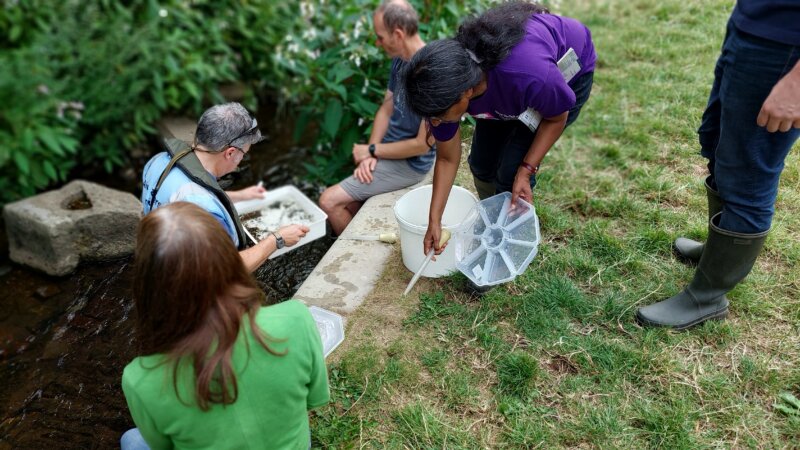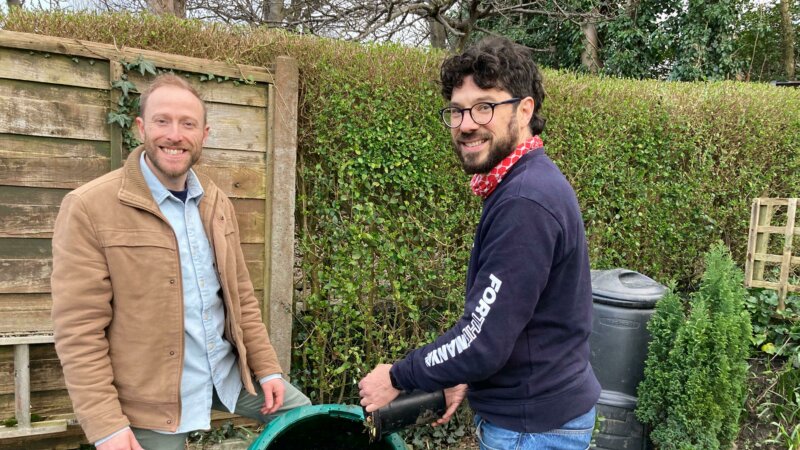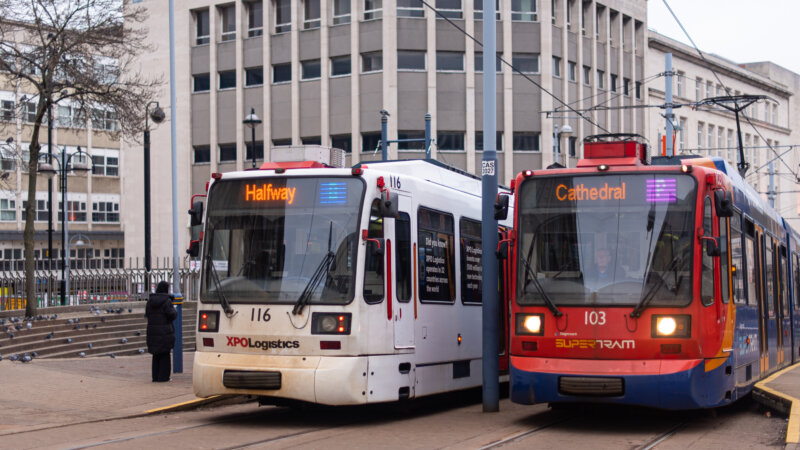Sheffield needs a transport revolution
Considering how cheap and well-connected our city’s public transport used to be, big changes which reduce emissions and offer a viable alternative to cars are well within reach. It’s a matter of political will.
There’s something incredibly frustrating about seeing video footage from the 1960s of Sheffield’s trams going from the city centre right past where you live, and knowing the route (and the tracks) aren’t there today. Or comparing people’s memories of a council-run bus network and its 2p journeys with our current bus network and seeing it’s just a shell of its former self.
The changes we need to see to meet the challenge of the climate crisis are too often framed in shining steel and technocratic solutions; building a system of fully automated luxury, with autonomous, electric cars at our beck and call. But when it comes to transportation, our city actually having a fully integrated bus network would be a much better starting point.
As our city faces up to the climate crisis, with a leading pledge to be zero-carbon by 2030 and recognition of the ecological emergency by Sheffield Council, and the promise of a green (with a lower case ‘g’) New Deal from our Mayor, how we transform transportation will be a key issue. The plans made will show what our ambitious declarations really mean in reality.
Transportation is the largest contributor of greenhouse gas emissions in the UK according to the Department for Transport and the vast majority of these emissions come from private cars. Most commuters in Sheffield City Region still get to and from work by car (71%), which causes congestion and long journey times, and negatively impacts air quality and public health. As well as the impact on the climate, the fact that our city is dominated by private cars also means we are heading into an air pollution crisis. Recent research commissioned by the British Heart Foundation suggests that over the next decade more than 1,400 people will die from air pollution in Sheffield alone.
But if we are to deliver a car-free Sheffield, we’ll need to transform public transport and re-plan the city to make it possible. You can’t have a modal shift without a viable alternative mode to shift to.
It pains me to say this, but as a daily user Sheffield’s public transport is sh... inadequate. Our buses are infrequent and overpriced. Decades of routes devised in the interest of profit rather than communities makes it almost impossible to get anywhere that isn’t the city centre.
In June 2020, an SCR-commissioned review, conducted by Clive Betts MP, recommended sweeping changes for South Yorkshire’s buses, including introducing Mayoral oversight of the network within 12 months and exploring a franchising model. This would bring our region in line with other city regions like Manchester and West Yorkshire, where politicians will be able to set prices, routes and decarbonise their fleets.
Campaign groups across South Yorkshire, including the TUC, ACORN and We Own It, have long called on local and regional politicians to bring buses into public ownership, so that we can develop a transport system that is cheaper, less polluting and more accessible for everyone. Last week, Sheffield Heeley MP Louise Haigh ramped up the pressure by launching a website to gather reports of the daily issues faced by bus users, as a way to “put pressure on bus companies and [SCR Mayor] Dan Jarvis” to move towards public ownership.
Of course, you can’t build a public transport network with only one mode. While other similarly-sized cities like Birmingham or Manchester have extensive suburban rail networks, the so-called Beeching cuts of the late-60s devastated ours, meaning that intra-city trains are all but a pipedream. Our tram network is much more reliable than our buses, but large swathes of the city are excluded from it. An expanded inner-city tram and train (and tram-train!) service, which is fully integrated with our buses, is now a necessity.
As we edge ever closer to that 2030 deadline – the date by which we need to have eliminated the majority of our carbon emissions – you wonder how much longer we’ll have to tolerate the nightmare of privatisation that ensures our city’s domination by climate-destroying metal boxes.
Our active travel infrastructure is currently lacking across the city. Far too many existing cycling lanes stop and start where they please, making it clear they haven’t been designed with cyclists in mind. Thankfully, there are ongoing consultations about implementing active travel measures across the city to make streets and neighbourhoods safer, less polluted and more accessible to everyone. These consultations suggest that active travel measures are overwhelmingly backed by local people.
Sheffield needs a transport revolution. Considering how cheap and well-connected it used to be, that’s well within reach. Like most things, whether we get circular bus routes, fully-integrated public transport, more frequent and cheaper – if not free – services, is simply a matter of political will.
We know change won’t be forthcoming from the Tories, whose idea of a transport revolution last week was using Pacer trains – themselves formerly buses – as classrooms. In the absence of national leadership on both the climate and transport, we have to lead ourselves. Climate activists have called on the region to make buses free for the duration of COP26, the upcoming UN climate summit, to highlight the radical action needed to tackle the climate crisis.
A 21st-century public transport service is one that’s plentiful, accessible, green and free at the point of use. Sheffield needs transportation that works for both people and planet.







